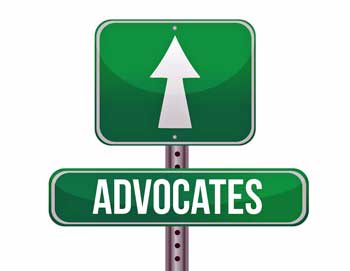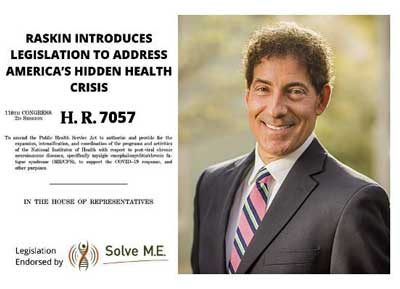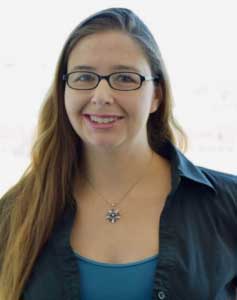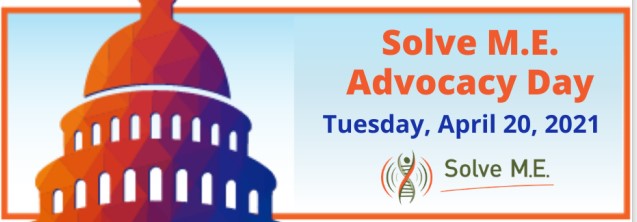

The Long COVID Funding
The 2020 COVID-19 Economic Relief bill had been months and months in the making, and while Emily Taylor, the lead advocate for the Solve ME/CFS Initiative (Solve M.E.), had publicly shared nothing, she was keeping a very close eye on the long COVID funding. The language which ended up in the bill, she said, had been bouncing around the Hill for a while.

The NIH got a billion-dollar push in long-COVID funding from Congress.
In fact, she and Solve M.E. had submitted similar language in H.R. 7057 – the bill that they and hundreds of ME/CFS advocates had been fighting for to give Congress a voice in ME/CFS funding at the NIH. With the number of ME/CFS grant applications at the NIH going down, and Director Collins reporting there would be no more new money for ME/CFS, Congress was the main focus.
Back then the goal was to link ME/CFS as closely as possible with long COVID. The virtual April 2020 Lobby Day smashed attendance records as hundreds of ME/CFS advocates made that connection clear to their representatives.
That foundation laid, Solve M.E. then pushed for $100 million to focus on “the rapid acceleration of diagnostics” in order to make the scientific connection between long COVID and ME/CFS crystal clear. Most people expected a COVID stimulus package by July, but the Republican counteroffer to the surprisingly large (and unpassable) package offered by the Democrats made it clear the parties were nowhere close.
Solve M.E. then spent the next couple of months trying to get the “Understanding COVID–19 Subsets and ME/CFS Act” (H.R. 7057) across the goal line. It lined up over 50 co-sponsors – a record for ME/CFS – but by then, anything COVID-related had become a political hot potato and the House Health subcommittee refused to take it up. That bill was dead in the water as well.
Solve M.E. switched focus, gathered a coalition of 21 ME/CFS, related chronic illness, and public health organizations and on December 4th published a letter emphasizing the need for much more long COVID and ME/CFS research funding.
Congress ended up passing the $900 billion COVID relief package on December 20th, and President Trump signed it into law on the 27th. Emily said she got a copy of the final bill in the wee hours of the morning from Thorn Run Partners (the DC lobbying group Solve M.E. had retained to work on ME/CFS issues.)
The long-COVID part took up just a few lines of the massive bill but they were crucial for our future. With the vaccines coming, the pandemic was sure to ramp down in 2021. We had an agonizingly short window of opportunity to get long-COVID funding realized. This was it.
The $100 million for rapid diagnostics Solve M.E. had pushed for was there – and in much the same language – and so was another billion dollars for long-COVID research. Where had that come from? Emily reports that it came down to an ME/CFS-friendly Senator with influence. They know who it is but cannot share that information at this time.
The language regarding long COVID was vague. By then, Emily said she’d been tracking different versions of the bill for 8 months and had communicated with committee members and followed up with congressional staffers. They asked her: is this what we wanted? The answer was yes. Over a billion dollars was going to flow to long-COVID research and that meant a potential bonanza for ME/CFS and other post-infectious diseases.

They called and you came. Hundreds of advocates that called for more funding during Advocacy Day and the push for H.R. 7057 laid the groundwork for the massive long-COVID funding that arrived.
Everyone who participated in that effort should pat themselves on their back. It’s hard to tell from an individual standpoint how much of an impact any one person’s talk with a representative might make, but add hundreds of conversations together, though, and the potential for impact is huge.
The Thorn Run lobbying group believed the 358 advocates who joined Solve M.E. during Lobby Day, the push Solve M.E. and the ME/CFS community next made for H.R. 7057, and then the submission of the Coalition letter played a critical role in educating the legislators about the need for long-COVID and ME/CFS funding. If you participated in any of these efforts, you may have made a huge difference in our future.
Onto the National Institutes of Health (NIH)
The big question awaiting us is how the NIH is going to roll out the billion-plus funding for the long COVID. After it became clear that a Coalition was the most effective way to get the NIH’s attention on ME/CFS and long COVID patients’ needs, Emily reached out to even more organizations, forming the Long COVID Alliance (www.LongCOVIDalliance.org). (Health Rising is a member.)
The Alliance is emphasizing research topics like dysautonomia (specifically POTS), small fiber neuropathy, exercise testing, mast cell activation, and neuroinflammation, which may not loom large on the NIH’s radar but have proved valuable in ME/CFS and related diseases. Plus, an appendix provides examples of research projects that are “shovel ready”; i.e. that simply need the funds to move forward.
I don’t have any idea if any of this money will go specifically to ME/CFS. My guess is that the NIH will set up a grant award system and ME/CFS researchers, like all others, will be able to apply. Given the small ME/CFS research community, though, even if successful ME/CFS researchers couldn’t win even a small fraction of the grant awards coming out of a funding award this large; i.e. the vast majority of work on long COVID will be done by people outside this field. People with ME/CFS are also natural control subjects, though, and will hopefully participate in many long COVID studies.
The great potential outcome is that we learn what causes long COVID, and by doing that, we also learn what causes ME/CFS.
Good Timing!
We haven’t always had good timing. A funding increase for the CDC’s ME/CFS program got snuffed out, for instance, when President Trump raided federal agencies to build his wall. The unpassable stimulus bill put forward by the Democrats halted the chance for an early stimulus package. Then H.R. 7057 got snuffed out in the Democratic House by the political posturing around the COVID-19 stimulus package.
The point is that stuff is always happening and it’s easy for a cause like ours to get temporarily lost in the shuffle. Countless efforts have been pushed through or derailed when the stars shifted course. The key is to be good enough and consistent enough to override the “acts of nature” that can occasionally occur.
In other ways, though, our timing has been really good. The five years of consistent work enrolling allies on the Hill paid off big time with the long -COVID funding. Dr. Avindra Nath had done enough work on ME/CFS in his intramural study that he was able to parlay that into a similar study on long COVID.

It’s easy to support ME/CFS research – simply enroll in the You + ME Patient Registry and fill out the questionnaires.
Then, as the pandemic hit – and the opportunity for people with ME/CFS to participate in Long COVID studies loomed – up popped Solve M.E.’s You + ME Patient Registry. It now provides a rigorous way to track both ME/CFS and long- COVID patients. Having well characterized ME/CFS and long COVID patients and healthy controls in one package is a pretty sweet deal for researchers..
As of February 26th, the Patient Registry had 2,056 people with ME/CFS; 362 people with COVID and 316 control volunteers in it. It’s a nice start, but we can do much better – given how easy and painless it is to join it and make a difference in our community.
Enrolling in the You + ME Patient Registry simply requires signing up and filling out questionnaires about your health. You’re not committed to being in any studies (you can even agree not to be reached) but simply joining up will provide valuable and unique data on what ME/CFS is, how it gets started, what symptoms are produced, family history, comorbid disorders, an understanding of how ME/CFS proceeds over time, etc., plus it will provide patients for studies and clinical trials. It’s the kind of data that big pharma, for instance, really loves and has been missing from us.
Please enroll in the You + ME Patient registry here
The Registry is currently open to U.S. residents and will open globally soon
Centers of Excellence Coming?

Centers of Excellence spread across the U.S. is one possibility.
Congress, Emily said, is watching what the NIH is doing with the billion-plus dollars they got for long COVID. It was Congress, after all, which appropriated all that money to the NIH. That’s good news for a disease (ME/CFS) which has noticeably increased its standing on the Hill over the past year.
Emily feels we’re in a good position. Our strength is that science continues to indicate that the link between long COVID and ME/CFS is strong.
That link could set us up for some monumental gains. Emily got excited when she talked about the potential for a dozen or more Centers of Excellence addressing long COVID (and ME/CFS) being built across the U.S. They’d be called long COVID Centers at first but Emily sees them evolving into post-viral illness and eventually becoming M.E. clinics.
We’ve been trying to get Centers of Excellence for ME/CFS for decades. They make total sense as they provide a triple whammy – treatment, research and education – all in one basket. The U.S. ME/CFS Clinician Coalition is there, ready to help: it already provides a complete package of the resources needed to quickly educate providers. Long-COVID Centers of Excellence could be a gateway to nation-wide physician education effort. Bye-bye scarcity and stigma – hello abundance and legitimacy?
H.R. 7057
The fate of H.R. 7057 and its 50 co-sponsors is unclear at this point, but one thing is clear. The star of its sponsor, Rep. Jamie Raskin, is rising. Raskin lead the recent impeachment trial against Donald Trump. (Seven of the nine Democrats involved in the impeachment prosecution supported H.R. 7057. Their stars have likely risen as well).

The star of the House sponsor for H.R. 7057 – Jamie Raskin – has brightened.
Raskin’s not the only star on his team. Emily reported that Raskin’s chief of staff Julie Tagen – whom she’s been in close touch with throughout the bill’s progress – showed a special kind of courage when the mob stormed the Capitol.
Raskin and his team were quickly whisked away to a secure area but Raskin’s daughter and son-in-law – who were there to see history made – were not. (Instead, they saw a very different kind of history). Tagen left the secure area to go and to find Raskin’s family. When she did, Tagen took them to an office, barred the door, and defended them with a fire poker as the mob rampaged outside. Luckily, they were unharmed.
Stay tuned for more on the future of H.R. 7057.
More Long-COVID/ME/CFS Stuff

Emily Taylor sees more opportunities ahead as sequestration ends and earmarks are allowed.
Sequestration Ending – Things are looking up in ways we might not have guessed. Emily stated this is the last year of the 2011 Budget Control Act, known as budget sequestration, which limited an ask for more funds to one effort a year. With the Act ending, it will be possible to directly ask for more funding including doing precision asks for special efforts.
As of February 26th, new earmark rules may also change the budget process. Hopefully, the Solve M.E. team can use earmarks to directly mainline funding to key ME/CFS research centers.
As the Democrats have historically been more supportive of our requests, the Democratic control of all three chambers offers more opportunities for ME/CFS as well.
Waiting for Strategic Report – When the pandemic hit, the DHHS (Department of Health and Human Services) had been tasked with providing Congress with a strategic report to address government response to ME/CFS. The pandemic took that off the table, but Congress recently informed the DHHS that it was still expecting that report.
Emily is hoping to use that as leverage to get a long-Covid federal advisory committee or taskforce created, with the idea that everything we do with long COVID ultimately becomes a post-viral or ME/CFS committee. They want to push that committee through Congress so that the DHHS doesn’t dissolve it as they did the federal Chronic Fatigue Advisory Committee (CFSAC).
Conclusions
The possibilities before us – greatly expanded funding, Centers of Excellence, better educated doctors, even getting at the roots of ME/CFS and long COVID and developing treatments – are immense. At the very least, it’s hard to imagine we won’t make some real inroads in these diseases.
It has to be emphasized that we didn’t just stumble here. All that long-COVID funding didn’t just fall out of the sky. It took work. Four years ago, Emily Taylor laid out a long-term plan that involved things like consistent messaging, getting into all the rooms, building relationships, and always keeping our eyes on the ball. Four years of us consistently showing up on Capitol Hill and enrolling others in our fight led us to the point where this community played an important role in this vastly important piece of legislation – not just for us – but for hundreds of thousands, if not millions, of people with long COVID.
So what’s next is to continue doing just that – to continue showing up and enrolling others in our cause. Last year, a record 358 people with ME/CFS and their supporters participated in Solve M.E.’s virtual Lobby Day.
Registration into Solve M.E.’s virtual “ME/CFS & Long COVID Advocacy Day” on April 21st has opened. This year, let’s make it 1,000 people. Can you imagine the difference a 1,000 people with ME/CFS could make?
We, after all, have the best story in town. We’re the really long haulers! We were there way before COVID. It’s time to make up for past wrongs and take care of them and us…
Register for Solve M.E.’s 2021 ME/CFS & Long COVID Advocacy Day here







Cort, thank you for blogging this.
You have been very selfless.
Thank you also displaying a photo
of Emily Taylor—it is wonderful
to see a picture of (another)
modern-day HERO.
Kudos.
Thanks. It’s exciting times. I was so happy when I learned we had a long term plan and a professional advocate! And am so grateful that the years of consistently chipping away at this are paying off.
We’re not acquainted with terms like a billion dollars. I’m sure that a good portion will go to people with lung and other tissue damage and quite a bit will to the run of the mill long haulers. With money like that we can expect huge studies, huge tracing efforts and hopefully even Centers of Excellence.
The NIH has abundant reason to believe, after all, that many long haulers are going to remain long haulers for years to come. What better way to treat and research them than via Centers of Excellence?
I am so glad that the Coalition put forth research priorities that make sense given what we know about ME/CFS. The danger is that those might get missed. I don’t think they will though. ME/CFS has been pretty closely tied to long COVID.
Eagerly waiting the NIH’s plan which was to be announced earlier and has been put off a bit.
cort, i would love to know HOW Covid people with ME/CFS are to REHAB, EXERCISE? see, i now have Parkinsons and with ME/CFS its darn IMPOSSIBLE to exercise whereas Parkinsons you have to MOVE but with ME/CFS you can’t! HOW with Covid?
‘Waiting for Strategic Report – When the pandemic hit, the HHS had been tasked with providing Congress with a strategic report to address government response to ME/CFS. The pandemic took that off the table, but Congess recently informed the HHS that it was still expecting that report.’
Great! Relentless, focused follow up on reports, decisions etc is, I think, crucial in making breakthroughs in these big, long term kind of issues. It’s so easy for these projects to be sidelined and lost. So I’m delighted to see that there is an expectation that the homework assignment has not been forgotten about and will have to be completed and turned in.
Homework not complete. It seemed to me that Vicky Whittemore was very excited about doing the report. My sense was that the call to do the strategic report was the outcome she most wanted out of the NANDSC group and, in fact, was the main reason for the group’s work. She had a lot planned. I think she’s raring to go.
Cort, how do the Centers for Excellence get chosen? Do institutions (universities? hospitals?) choose to be one? Does NIH choose?
I don’t know but I suppose the NIH would open up an application process, review the applications and then choose. The NIH is in charge of everything so they would ultimately choose.
Emily Taylor has achieved hero status in the ME/CFS community, as far as I am concerned. I had huge hopes for her when she joined SolveMECFS and began sharing her vision, and boy did she deliver.
Yes, I agree Thane. Emily Taylor battles away, behind the scenes, with a heavy burden of responsibility on her shoulders. I feel it takes immense perseverance and flexibility to keep the pressure on, even when circumstances change. I admire her resilience and ability to stay focused.
Absolutely!
I don’t know why politics had to be brought into this, like saying Trump was at fault because of building the wall and then the whole January 6th debacle that paints a picture of Trump supporters being the problem when really it was ANTIFA aka anti government which has nothing at all to do with Trump. I’ve always loved what you publish but talking bad about the greatest president TRUMP we have ever had realy rubbed me the wrong way.
I got it! Actually it was just supposed to reflect the never certain and up and down nature of legislative action. Notice that the same thing happened when we got good support for HR 7057 but the bill was derailed because COVID-19 support became such as hot potato.
The point is that there are so many things can go wrong or go right! Like working for 4 years and then being ready to take advantage of the opportunity the pandemic presented for more research. Or having the You+M.E. Patient Registry open the same year the Pandemic occurred.
For Mr. Trump – he thankfully signed off on the most important bill on ME/CFS ever.
Is this a joke? It was definitely Trump supporters storming the Capitol. Trump doesn’t deserve your devotion. He is a selfish con man who got people killed trying to run a con against democracy.
I too wish you would take all politics out of this, such as “Raskin lead the impeachment trial against Trump.” Don’t get me started on the comment about the Wall. This isn’t the first time I’ve been put off by a political bent in your reports.
I realize that it’s hard to avoid bringing politics into the discussion during these superheated times but it’s not politics to say that when X happened it affected our chances for a bill. It’s not meant in that vein.
I think that you’re right though – it was slanted to much to one side.
I just added these to blog to even things out a bit.
“The unpassable stimulus bill put forward by the Democrats halted the chance for an early stimulus package – and long COVID relief.”
“Then H.R. 7057 got snuffed out in the Democratic House”
Please note though that blog didn’t praise Raskin or that effort. Nor did it argue yes or nea on the Wall.
It meant to point out that the status of our most important legislator in House has risen. That’s quite good news for us – and a cause for optimism moving forward.
If the same had happened for a kep Republican supporter of ME/CFS I would have pointed that out.
True . I had mentioned Trump in a much earlier post before he signed off on bill for mecfs. Now I hope we all forget tribalism in politics and are open minded to who is pretending and who is real. I argued this point and cort was very open minded and caring. Cort is a man of integrity that we all can respect very much
Cort, all of this is encouraging news! Do you know which researchers are involved in the You + ME Patient Registry? I couldn’t find that information in the link. It does show 2 researchers on one of the pages but doesn’t identify them. I did see a post by Dr. Anthony Komaroff on one of the pages so I assume he must be one of them.
I don’t know but I hope to find out.
Thank you Cort!
I agree – there seems to be a lot of reasons for optimism right now.
As a patient, is there any advocacy that you think we can do even before this year’s Solve M.E.’s virtual Lobby Day or signing up for You+ME? I just keep trying to think how ME/CFS can have a seat at the table with the NIH for how the approved funding will be appropriated. Not sure if you know of anything else or if we just need to sit tight.
It really feels like a line-in-the-sand moment for us all….
This whole year feels like it’s been a line in the sand moment for us.
I wonder if there will be a comment period regarding the NIH’s use of the COVID funds?
The only thing I can think is to keep up with both Solve ME/CFS and ME Action on the advocacy front. I’ve focused more on the legislative stuff but ME Action has their fingers in so many different issues as well.
I think that ‘long covid’ might actually be a distraction to our cause, and not help.
I hope I am wrong, and it’s just a gut feeling.
We would all probably rest easier if the money was directly for ME/CFS (:)) but hoped for a $100 million and got over a billion dollars for long COVID. That’s a lot of money! So long as all that money produces results in long COVID that we can then test in ME/CFS I think we will be fine.
Of course we don’t know if the coronavirus is triggering the same pathways that the other viruses do in ME/CFS but I would be shocked if core similarities didn’t show up.
True . I had mentioned Trump in a much earlier post before he signed off on bill for mecfs. Now I hope we all forget tribalism in politics and are open minded to who is pretending and who is real. I argued this point and cort was very open minded and caring. Cort is a man of integrity that we all can respect very much
Hello 🙂 Thank you for your posts, they are written very well, even if you are not fluent in English like I am… I was wondering if maybe you know when (which month) the You + ME registry will be open to Europeans? Thank you, greetings from Austria 🙂
I have been told soon. 🙂
Hello, do you know when the You + ME registry will be open to Europeans?
Greetings from Austria!
I have been told soon. Will have a blog on it 🙂
great, thank you!
Thanks Cort for your overview of these current developments regarding the legislation and related issues surrounding all of it. Unfortunately, some folks want to dismiss the truth concerning those who’ve caused setbacks in our efforts for answers for years. Diverting or misusing funds for ME/CFS research has been a challenge for us including the CDC and NIH. For example, a CDC “whistle blower” exposed hard fought for funds that went to chickpox research not ME/CFS research as designated. Blame those who hold us back and give credit where credit is due. Ultimately, our goal is to find support and get answers to our questions. Keep up the good work.
Janice Kobi,
Thank you, I wondered where the money had been spent, and did not know that it had been found.
Epstein Barr Virus back in the news; apparently long covid and EBV are now being linked. Thanks to Lidia Thompson, whose online link to this article I have pasted below:
https://www.dailymail.co.uk/health/article-9358477/Why-struck-Long-Covid-really-suffering-glandular-fever.html?ITO=applenews